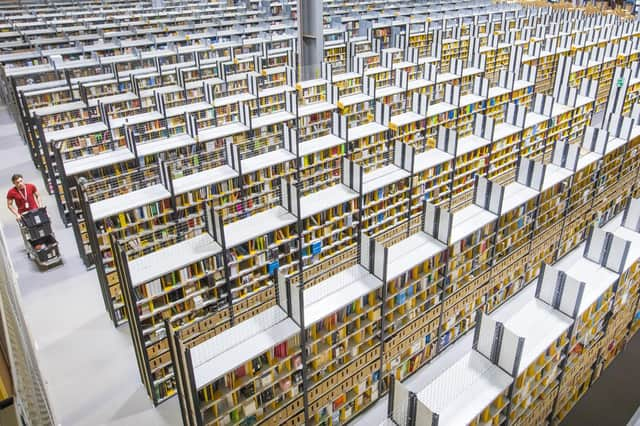Waste reduction needs laws and enforcement - Lorna Slater


Take Amazon CEO Jeff Bezos, who has seen his profits soaring, and could be on course to become the world's first trillionaire. The opulent lifestyle he enjoys could not be further from those of his employees, some who have had to sleep in tents by the motorway to make ends meet.
That is why it was so shocking to see last week's ITV report, which revealed that the Amazon warehouse in Dunfermline is destroying thousands of unsold items every week, including computer equipment, books and even face masks. Many of them are brand new and perfectly usable, but Amazon would rather destroy them than donate them to our schools or people that would benefit.
Advertisement
Hide AdAdvertisement
Hide AdDespite record profits, which topped $20 billion in 2020, Amazon has received millions of pounds worth of support from the Scottish Government.
This must stop. How can it be that so much money is being poured into a company that is making such vast profits while treating its staff so poorly? Public money should be used for the public good. It should be going to small and local businesses and those that need help to recover from the pandemic.
At heart this is a question about what kind of future we want. This is an opportunity for transformation, and for us to think about the kind of society that we want to rebuild. It must be a recovery with people at its heart, not one that only benefits multinational corporations and business giants like Amazon.
Where I live in Leith, there are hundreds of great small businesses that have suffered and struggled through the pandemic. There are many of these businesses across Edinburgh. They are at the heart of our communities and our city, and can play a vital role in building a fairer, greener future. Their recovery could be so much smoother if they were given the same level of support that has been shown to companies like Amazon.
Advertisement
Hide AdAdvertisement
Hide AdWe need to work with them and do a lot more to build what is known as a circular economy. That is an economy that eliminates waste by promoting sharing, reuse, and recycling. This kind of approach wouldn't just be good for our communities, but also for our environment.
In the Green movement we have a phrase, 'think global, act local.' It's something we can all do, and something that can have a vital impact in Edinburgh and beyond. There are simple steps we can all take. Every time we recycle, we are reducing our waste. And every pound we spend locally can go a long way to helping local businesses and jobs.
But the responsibility to act is even greater when it comes to the biggest polluters and corporations. The decisions being made in boardrooms today will have an impact for years to come. That is why a commitment to waste reduction doesn't just need words, it also needs robust laws and enforcement.
That's not just a challenge for billionaire businessmen like Jeff Bezos, but also for politicians and governments. It's a challenge that my colleagues and I are doing everything we can to address.
Lorna Slater is a Green MSP for Lothian
Comment Guidelines
National World encourages reader discussion on our stories. User feedback, insights and back-and-forth exchanges add a rich layer of context to reporting. Please review our Community Guidelines before commenting.